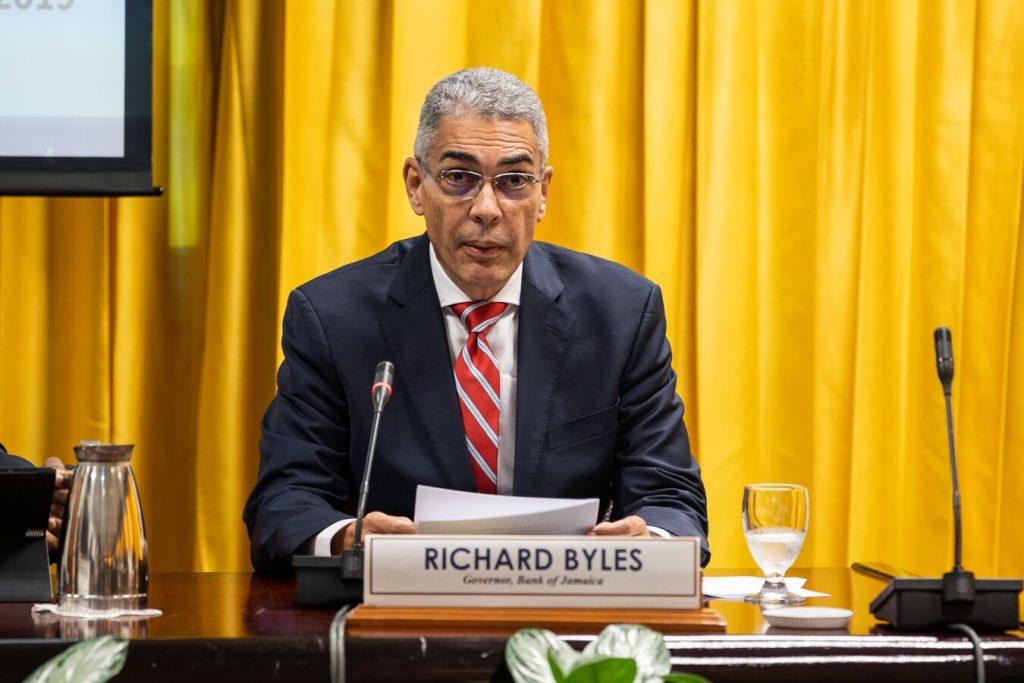Bank of Jamaica (BOJ) Governor Richard Blyle says Jamaica will be off the European Union blacklist of countries that pose financial risks to the bloc because of anti-money laundering and terrorism financing shortfalls.
In taking note of the intended blacklisting of Jamaica, Governor Byles told journalists at a virtual news briefing on Thursday, “Rest assured, Jamaica wants to get off of that grey list, and the Bank of Jamaica is committed to leading that process. In 2021, mark my words that we will be taken off the EU blacklisting.”
Jamaica is among 12 countries the EU on Thursday added to its list of states that pose financial risks because of anti-money laundering and terrorism financing shortfalls. The other countries added are The Bahamas, Barbados, Botswana, Cambodia, Ghana, Mauritius, Mongolia, Myanmar, Nicaragua, Panama, and Zimbabwe.
Governor Byles pointed out that the BOJ’s recently overhauled regulatory regime for electronic retail payment system, dubbed the fintech regulatory sandbox, would assist in the Jamaica getting off the blacklist.
He emphasised that the objectives of the sandbox are to provide a platform to encourage innovations in financial services, promote competition and promote financial inclusion. Participants in the sandbox will be permitted to test innovative financial products, services and businesses in a controlled environment.

In February, Jamaica was reportedly among seven countries placed on a grey list by the Financial Action Task Force (FATF) for what the entity described as weak links among some companies to money laundering.
Finance and the Public Service Minister Dr Nigel Clarke noted that the FATF found substantial deficiencies in Jamaica’s Anti-Money Laundering/ Combatting the Financing of Terrorism framework. These deficiencies were found in assessments done in 2005 and again in 2015, through mutual evaluation exercises.
The finance minister assured that there is an action plan to address the deficiencies, including the “finalisation of all the businesses and professions, such as the real estate, legal, accounting, financial, the jewellery (stores), the remittance, the pawn-broking, the car dealerships, and the non-profit sector…”
He said the action plan will need broad-based support in order to be effective. Dr Clarke pointed out that despite progress over the years, Jamaica has long had deficiencies in its anti-money laundering framework.




